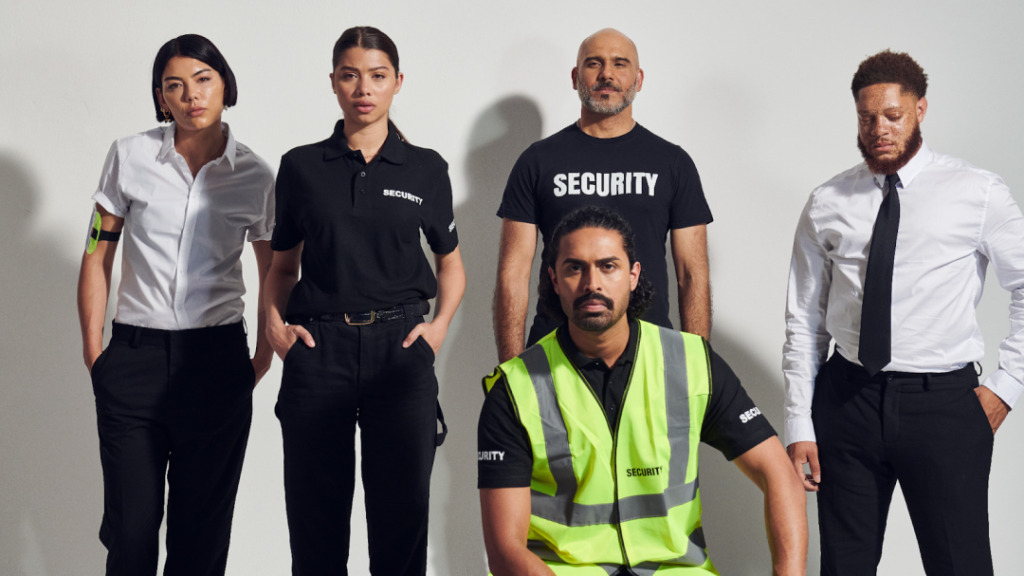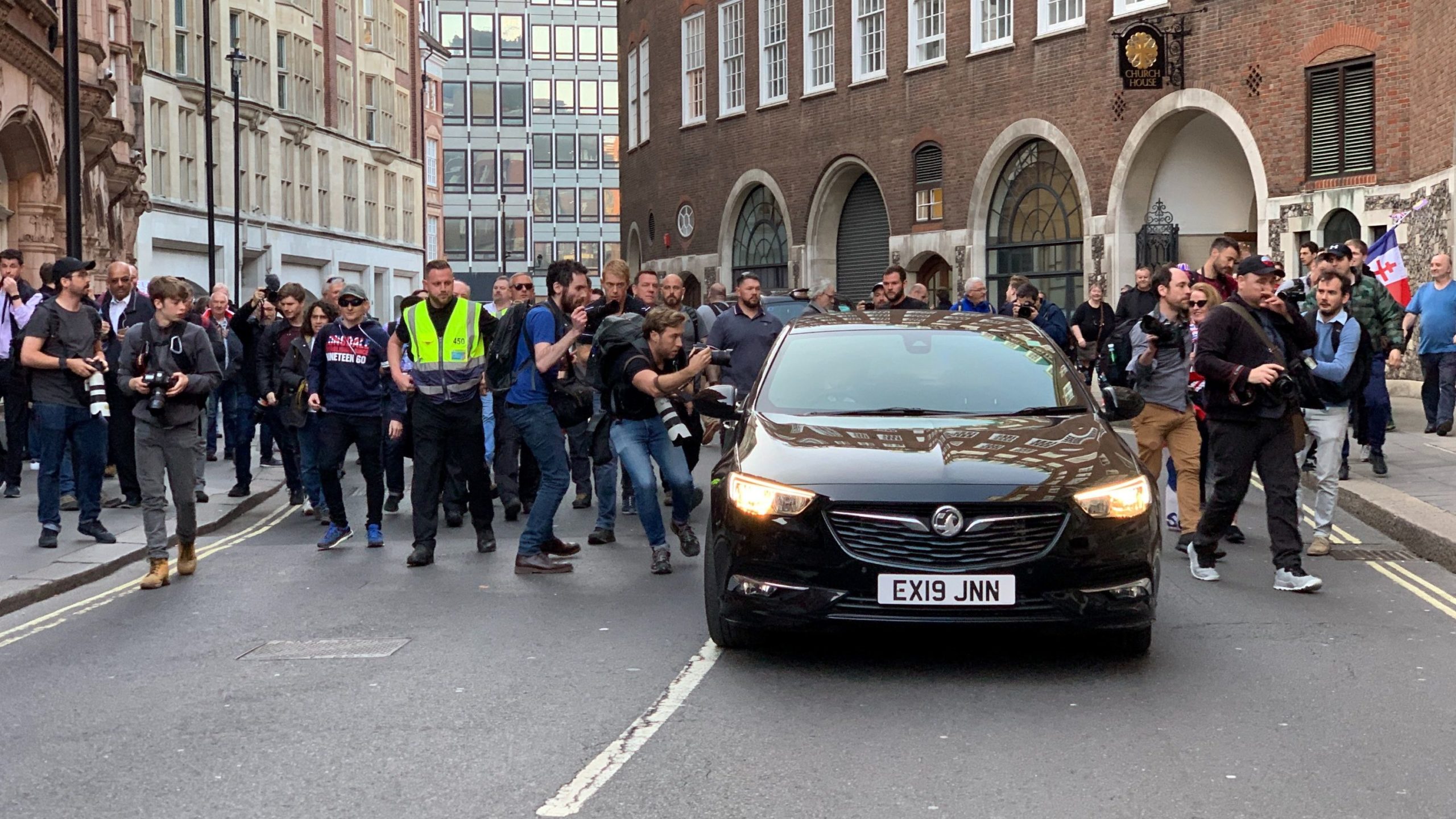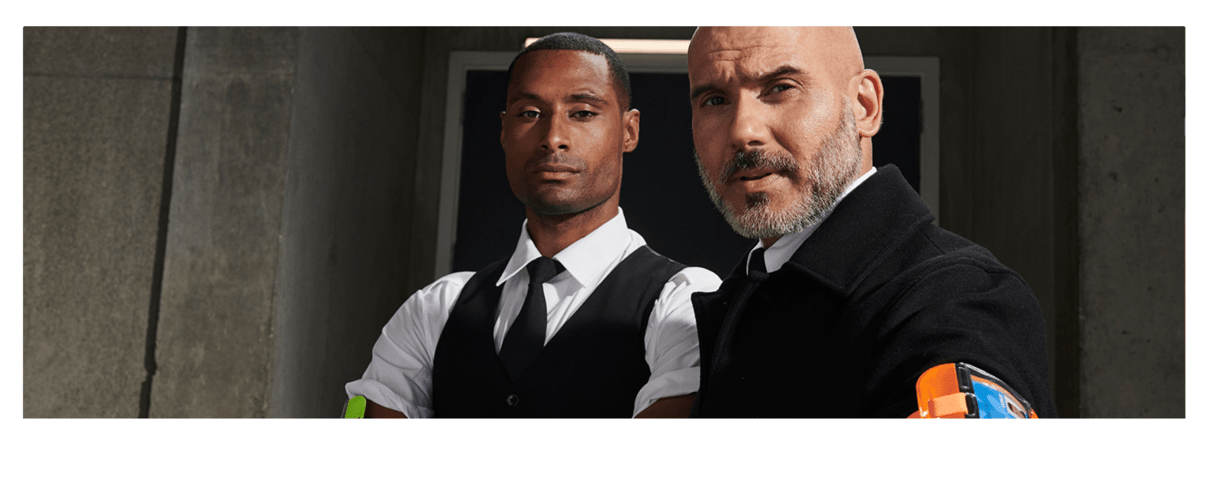So you like the idea of getting into the protection industry. You have done your SIA mandatory training. You’ve got your Security Industry Authority licence. But what area of the industry appeals to you most?
There are a wealth of options, and there will, without doubt, be a role that suits you best. Let’s have a brief look at some of the options open to you, and what you would be doing.

Corporate Security Reception Officer
You’ll be responsible for access control and dealing with visitors at your client’s offices. You may be called upon to take phone calls, escort guests to their host, even deal with mail. Making staff and visitor ID cards may be part of your role, so a level of IT familiarity would be advantageous. You will certainly need to be smartly dressed, as you will provide the first impression that some visitors will have of the client’s company. When working in a security team, you will normally be expected to perform regular building patrols, monitor CCTV, and perform other tasks on a rotation basis. Normally a standard security guarding licence will be required for these roles but in some cases, where CCTV systems also monitor public spaces, then an additional SIA CCTV licence may be needed.
Door Supervisor
Clearly you will need an SIA Door Supervisor’s licence for any role within the licensed premises sector. Your responsibility will be to ensure the safety and wellbeing of the staff and customers of the venue. Access control is a very big part of this duty, hence the term “door supervisor” as you will need to vet those wishing to enter, and prevent those under age, or that may already be inebriated, from gaining access. Wherever alcohol is in play, there is the potential for anti-social and unruly behaviour, and it will be the door supervisor’s duty to deal with these issues and eject offenders if required. For these reasons you will have had physical intervention training as part of you SIA course, which is not a requirement for the standard security guarding licence. You will need empathy, excellent communications skills, well developed powers of negotiation, and a very good knowledge of the laws around licensing and civil trespass to be successful. Although it may not be politically correct to suggest the obvious, a certain level of physical robustness would be highly beneficial when faced with violent conflict which, sadly, is almost inevitable and increasingly common.
Mobile Patrol & Alarm Response Officer
For those happy working alone, and that are able to manage their time effectively, mobile security could be a good choice. This role is predominantly a night shift and weekend requirement. Much of your shift will entail performing random patrols of sites, locking and unlocking different buildings, and performing inspections of vacant properties. Possibly the most interesting aspect is the “alarm response” element. Most intruder activations are false alarms caused system faults, insects triggering motion detectors, doors or windows being left open causing drafts to move blinds and curtains, or posters or decorations falling off of walls or ceilings. Some however are activated during a burglary, so having your wits about you and being alert at all times, is essential. You will need on occasion to liaise with the emergency services and clients so good communication skills are required, as is the ability to write clear and accurate incident reports. In most cases you will be working alone, and decent driving skills are a must. You will also be in charge of many sets of site keys and alarm codes so care and discretion must always be taken.
Security Dog Handler
A varied and generally pretty well paid role. If you’re a dog lover and able to provide a home for a “land shark” this may be for you. There are also many sorts of dogs deployed across the industry. General Security Dogs are highly trained and provide a great deterrent and pacifying presence in public order situations. As a force multiplier, there is little more effective at keeping a Security Officer safe than a great big hairy hound. There are also many breeds of dog using their phenomenal sense of smell for a multitude of purposes. Some dogs can be trained to be highly effective drugs “sniffers”. Others can detect explosives. There are even cadaver dogs, trained to seek out dead bodies. There is a lot of training involved for both dog and handler, so it is not something that you will master immediately. There is also an organisation that provides training and testing, and represents the Security Dog sector called NASDU, the National Association of Security Dog Users. Visit: https://nasdu.co.uk/ For more information.

Event Security Officer
Most events security officers love the role, and some arrange their working lives around favourite events or festivals. You will need to remember however that all the videos you see of security staff dancing at pop concerts and having a great time, are examples of officers that are frankly not doing their jobs properly. Events security officers have a huge amount of responsibility for the safety of sometimes many thousands of people. Whether you are performing access control, or crowd monitoring duties, you will need to be fully aware of your surroundings and be alert, at all times, to any potential issues or flash points. It is also somewhat less glamorous than you would imagine, with accommodation sometimes provided at big festivals and events, that may consist of a large tent with lots of camp beds dotted around.
Retail Security Officer
A sometimes exciting role, in most cases your presence will act as a deterrent to shoplifters in supermarkets or department stores. For many years, retail security officers were expected to challenge and detain those reasonably expected to have committed theft of the client’s property. With the ever increasing levels of violence now encountered, this role is normally restricted to monitoring CCTV, identifying suspects, and reporting incidents of theft. Often CCTV can provide good enough quality photographs to be able to identify offenders who will then be banned from re-entering the store. Occasionally you may work in conjunction with a Store Detective. This is another security professional, who will be wearing plain clothes, and who is trained in suspect and behavioural identification. They will observe a suspect, gather evidence and when needed, detain an offender, recovering the stolen property, and sometimes requesting Police attendance to give the suspect in to custody for charging. Store detectives are experienced at statement writing and giving evidence in court. Occasionally, they may require the assistance of a security officer, whilst detaining a suspect. They will also have an excellent knowledge of powers of arrest and the evidence required to prove that an arrestable offence has been committed.
Other “Static” Security Officers
There are many other guarding roles available, some may well appeal to you. I can’t go through them all, but here is just a few to give you a flavour of the diverse nature of the industry:
- Construction Site Security.
- Aviation Security.
- Ports and Logistics Security.
- Warehouse Security.
- Factory & Manufacturing Sector Security.
- Educational Establishment Security.
Street Wardens
I will end on this rapidly growing sector of the security industry.
Increasingly we are seeing a requirement for uniformed “Street Wardens” in many town and city centres. Unfortunately, the need for this type of security professional is solely down to the lack of warranted Police Officers on our streets. Many of these Street Wardens are highly trained and some are given additional powers under CSAS (the Community Safety Accreditation Scheme.) This means that they are able to perform many of the roles traditionally associated with Police Services. Many areas where these trained security officers are deployed, have seen significant reductions in anti-social behaviour, street crime, and shop lifting offences, as sadly, unlike the Police, qualified Street Wardens will arrest offenders, who will be prosecuted “privately” for their crimes.
Summary.
The security industry contains a wealth of variety and opportunity. Indoors or outside. Fulltime or part time. Exciting or routine. Days or nights. On your doorstep or travelling around the country, there should be a role that suits you and fits around your life. Here we have only had a glimpse of the physical security industry. There are also other avenues that you may want to explore like Risk Management, Security Architecture, Maritime Security, Cyber Security, Information Security, Close Protection and much more, but we will look at that another time. For now, be safe.


Leave a Reply